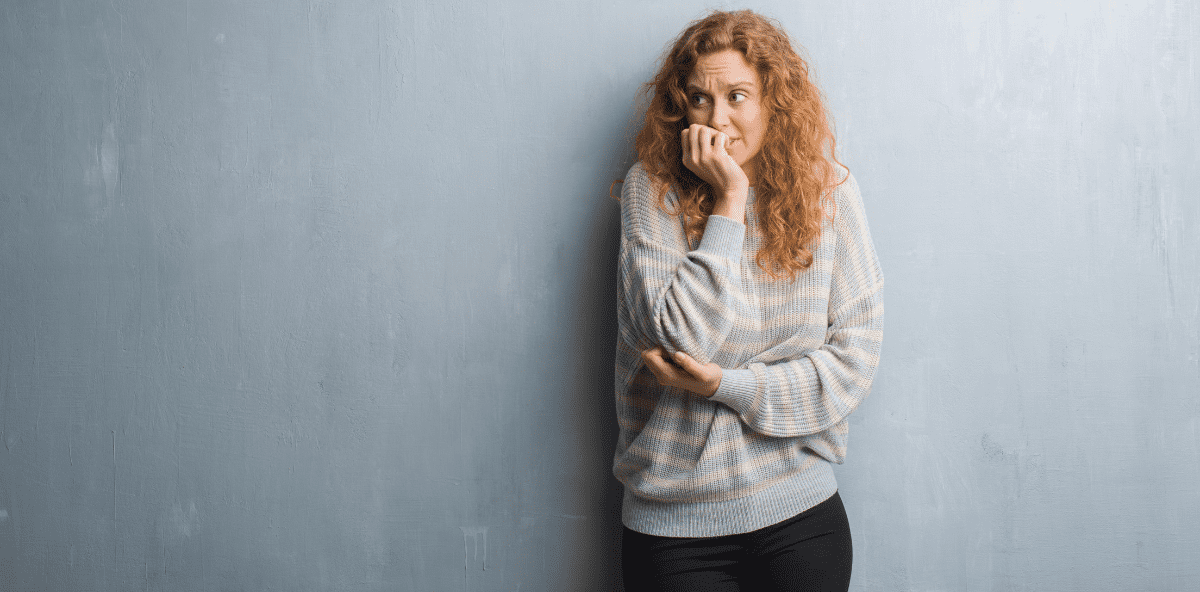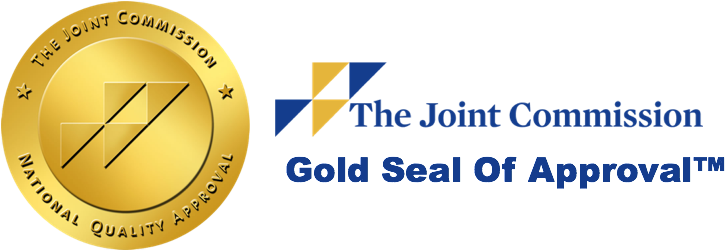Although alcohol may seem to at first help with anxiety symptoms, alcohol is a central nervous system depressant that can worsen anxiety. Abuse of alcohol can cause Gamma-Aminobutyric Acid (GABA) deficiencies in the brain, leading to heightened anxiety. This is a dangerous cycle that can lead you into a deeper spiral of anxiety, depression, and further substance abuse. Luckily there are many healthy ways you can reduce your stress without drinking.
Using Alcohol to Ease Anxiety
 Coping mechanisms are a necessary part of life. You use them to deal with stress, anxiety, and other challenging emotions. Some coping mechanisms are healthier than others. Though it may provide temporary relief, alcohol is not a coping mechanism for stress. Alcohol use produces GABA, a neurochemical that depresses the central nervous system (CNS).
Coping mechanisms are a necessary part of life. You use them to deal with stress, anxiety, and other challenging emotions. Some coping mechanisms are healthier than others. Though it may provide temporary relief, alcohol is not a coping mechanism for stress. Alcohol use produces GABA, a neurochemical that depresses the central nervous system (CNS).
The initial effects of alcohol are sedating. It can produce a sense of euphoria and decrease your inhibition. These effects can make it seem like drinking alcohol is an effective way to relieve anxiety.
While alcohol may provide temporary relief, over time it depletes the body’s natural ability to produce necessary stress-relieving chemicals like GABA and dopamine. This flood of synthetic substances followed by a deficit creates a vicious cycle in which you turn to alcohol to cope with your anxiety, which only worsens the anxiety. Additionally, chronic alcohol use can lead to tolerance or dependence and cause physical damage to the body, including the brain, liver, and heart.
The Connection Between Sleep and Anxiety
 Getting enough sleep is essential for maintaining good mental health. Lack of sleep can make anxiety worse. When you do not get enough sleep, your body is in a constant state of stress. This means that your brain is always looking for danger, even when there is none. As a result, you may feel anxious about everyday situations that would not normally bother you. You may also find it difficult to concentrate or remember things. Sleep deprivation can also cause physical symptoms such as headaches, dizziness, and stomach problems. All of these factors can make anxiety worse.
Getting enough sleep is essential for maintaining good mental health. Lack of sleep can make anxiety worse. When you do not get enough sleep, your body is in a constant state of stress. This means that your brain is always looking for danger, even when there is none. As a result, you may feel anxious about everyday situations that would not normally bother you. You may also find it difficult to concentrate or remember things. Sleep deprivation can also cause physical symptoms such as headaches, dizziness, and stomach problems. All of these factors can make anxiety worse.
If you are struggling to get enough sleep, you can do a few things to help. Try to stick to a regular sleep schedule, avoid caffeine and alcohol before bed, and create a relaxing bedtime routine. If anxiety is still causing sleep problems, talk to a mental health professional about anxiety treatment options.
Alcohol Destroys Sleep
Alcohol is a central nervous system depressant, and its ingestion is known to impact sleep in adverse ways. Alcohol consumption may initially act as a sedative, leading to drowsiness and impairing wakefulness the following day.
Research has shown that alcohol consumption decreases rapid eye movement (REM) sleep, the stage of sleep associated with dreaming. This can leave you feeling groggy and sluggish the next day. Alcohol also disrupts the normal sleep cycle by preventing you from entering the deepest stages of sleep where cognitive processes and memory consolidation occur. This leads to fragmented, disturbed rest and can cause daytime fatigue.
Finally, alcohol interferes with the body’s natural circadian rhythms, making it difficult to fall asleep at night and causing drowsiness during the day. These factors combine to create a perfect storm of poor sleep neurobiology.
As stated above, sleep deprivation wreaks havoc on mental health. Over time, anxiety and depression levels increase. It is important to remember this when tempted to use alcohol as a sleep aid.
Nervous System Regulation
 You may find that anxiety is a constant presence in your life. Managing an anxiety crisis can be a complicated and ongoing process but is essential for maintaining mental health and well-being.
You may find that anxiety is a constant presence in your life. Managing an anxiety crisis can be a complicated and ongoing process but is essential for maintaining mental health and well-being.
There are many different approaches to treating anxiety, but the most effective interventions help you learn how to regulate the nervous system. The nervous system is responsible for the body’s stress response, and when it functions properly, it helps to keep anxiety at bay. When the nervous system is out of balance, it can trigger the fight-or-flight response, which can lead to feelings of anxiety and panic.
By learning how to regulate the nervous system, you can help prevent these episodes from occurring. In addition, regulating the nervous system can also help reduce anxiety symptoms, such as racing heart, shortness of breath, and sweating.
Self-Help Interventions
 There are several ways that you can regulate your nervous system. One way is to practice diaphragmatic breathing, which involves breathing deeply from your abdomen. This type of breathing helps slow down the heart rate and promotes relaxation.
There are several ways that you can regulate your nervous system. One way is to practice diaphragmatic breathing, which involves breathing deeply from your abdomen. This type of breathing helps slow down the heart rate and promotes relaxation.
Another way to regulate your nervous system is regular physical activity. Exercise helps to release endorphins, which have mood-boosting properties. Additionally, exercise can help to reduce stress levels and improve sleep quality.
Finally, try to engage in some form of mindfulness each day. Mindfulness can be as simple as spending a few minutes focusing on your breath or taking a moment to appreciate the sounds and smells around you. Taking a few minutes each day to focus on the present moment can help to reduce stress and promote a sense of calm.
If you are using the strategies above and still find that anxiety is interfering with your life, it may be time for professional help. There are many treatment options for anxiety, so do not hesitate to seek effective services.
Get Dual Diagnosis Help From The Phoenix
Many people use alcohol in an attempt to manage uncomfortable symptoms of anxiety. Alcohol is a central nervous system depressant that initially acts as a sedative, reducing anxious feelings. However, alcohol abuse can lead to chronic anxiety by depleting the brain of Gamma-Aminobutyric Acid (GABA), which is an inhibitory neurotransmitter that reduces nerve activity in the brain. Alcohol also interferes with sleep, which is essential for managing anxiety levels. Poor sleep can exacerbate anxiety symptoms and make it more difficult to cope with everyday stressors. As a result, chronic alcohol use can actually cause the very anxiety that people are trying to self-medicate. The Phoenix Recovery Center provides both substance abuse and mental health help at the same time. A dual diagnosis of alcohol abuse and anxiety can require different treatment than experiencing one over the other. If you or someone you know is struggling with alcohol use and anxiety, please know that you are not alone and help is available.







